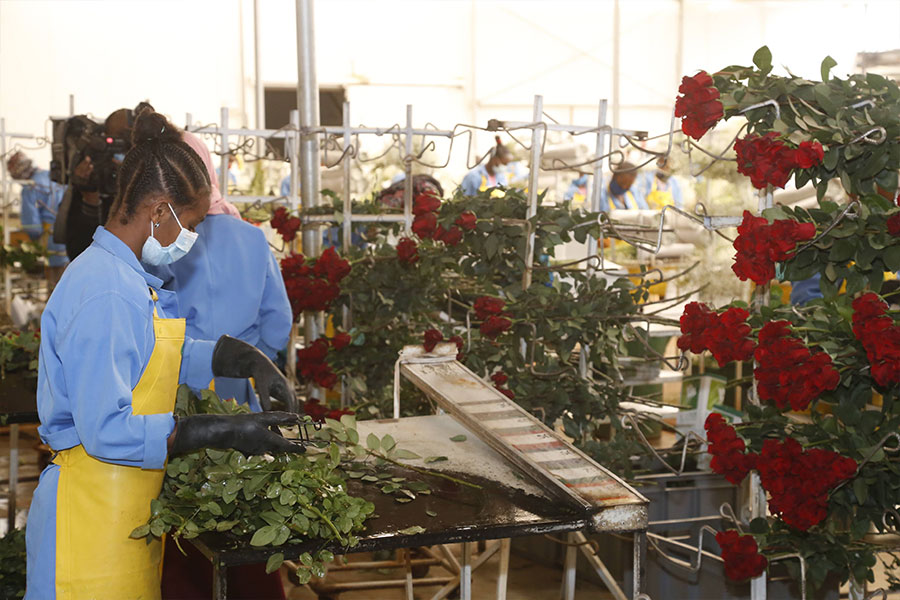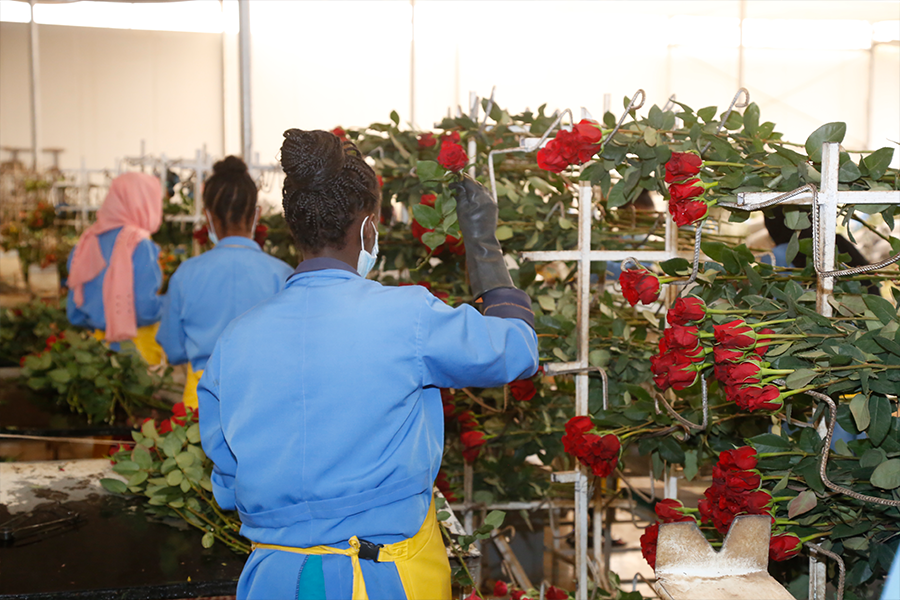
Viewpoints | Jun 03,2023
Aug 19 , 2023
By BERSABEH GEBRE ( FORTUNE STAFF WRITER )
A surging soybean market is stirring tensions between domestic oil processors and exporters as prices sharply rose to almost 1,000 Br for a quintal in two weeks.
Domestic processors, grappling with a price surge to 4,400 Br for a quintal, are raising an eyebrow at exporters, blaming them for bidding up prices and depleting local supply. Leading the charge is the Ethiopian Edible Oil Manufacturing Industries' Association, which is now pleading for a temporary ban on soybean export in hopes of keeping the edible oil manufacturing sector humming along at its optimal capacity.
The Association's few members have a throughput of up to 2,000qtl of soybeans daily. Its Board Chairman, Mohammed Yusuf, contrasted the motives of processors, who buy soybeans primarily as an input, with those of exporters, who buy to generate foreign currency even at a loss.
"We're playing different ballgames," he told Fortune. "While we have only a limited number of soybean oil processors in our country, the scale they operate is expansive."
However, the underlying concern for Mohammed and his associates is broader than the recent soybean price fluctuations. The central bank's recent adjustment in the ratio of forex surrender by exporters is viewed with suspicion.
"This move might entice exporters to sell more soybeans internationally, causing a further uptick in prices," he said.
Echoing these concerns, the Association, which represents 600 members, had, in the previous year, penned a letter to Industry, Agriculture and Trade ministries. They had then raised the alarm about unsold inventory getting stuck due to unappealing price floors for soybean cake by-products. Data, however, revealed that the country has upped its ante in soybean cultivation.
This year, the production area reportedly increased from 1.8 million to 7.9 million hectares. However, this increase has not translated to better availability for businesses like Kunifira Agro Processing Plc.
Kunifira, around the Gelan area, was incorporated in 2012 with a hefty capital of 60 million Br. He stressed the commitment of his company, which has ongoing contracts to supply edible oil to multiple universities and non-governmental organisations, having the capability to process up to 1.8 million litres annually.
"We can't stop supplying them," declared Kumsa Shanqo, its significant shareholder.
However, despite the growth in the cultivation area, the dearth of soybeans had pushed his plant's operations to a mere 20pc of its capacity. The recent price upswing has only deepened his anxieties. Kumsa recollected a meeting with trade ministry officials where he complained about the strong export focus while domestic industries struggled to catch up.
But not everyone sees eye to eye with the Association's perspective.
Nearly 85pc of Ethiopia's forex earnings of four billion dollars hinge on agricultural products, compelling the authorities to be reluctant to support domestic producers over exports unless the first drive their outputs for the export market.
For Tarekegn Bululta, the state minister for Industry, doing so "Isn't feasible."
Though unaware of the Association's recent letter, he recalled approaching the ECX last year, "advocating for priority access and the permission for primary market transactions."
For many industry insiders, it is a complex conundrum. The soybean quandary, amidst a backdrop of geopolitical tensions, reflects the intricate economic hop between domestic needs and global demands.
Alemayhu Geda, a distinguished economics professor at Addis Abeba University, links the current turmoil to geopolitical strife.
"Many of these soybeans are cultivated in conflict-ridden zones," he said. "This turmoil is a grim reminder of the cascading economic implications of instability."
Alemaheyu emphasised the recurring cycle of soybean exports for foreign currency, only to be spent locally, and called on the government to prioritise manufacturers' needs.
Ethiopia imports edible oil to bridge the gap between domestic demand and supplies. Entities like Ethiopian Industrial Inputs Development Enterprise are gearing up to import 29 million litres of edible oil worth 43 million dollars this year. Parallel efforts are observed by executives of the Ethiopian Trading Businesses Corporation (ETBC).
A considerable number of federal officials do not buy the Association's argument.
Mesfin Abebe, an advisor at the Ministry of Trade & Regional Integration (MoTRI), scrutinised the soybean window dedicated to the domestic market and found less transactions mirroring the export trading floor. Pointing to the past year, he recalled that soybean production largely remained with farmers, pointing to lower local demand.
Exporters, unsurprisingly, have a unique vantage point.
Yosef Kefyalew's firm, which started with a capital of 20 million Br, exported soybeans and worth 700,000 dollars to India last year. While acknowledging the recent geopolitical tensions influencing prices, he emphasized global demand as the primary driver of export prices. He looks at the processors' plea with scepticism.
"We, too, aim to bolster our country's forex reserves," Yosef argued.
Offering a broader perspective, Sisay Amare, who heads the Ethiopian Pulses, Oilseeds & Spices Processor, Exporters Association, believes several factors, including the recent violent conflicts causing logistical challenges, were behind the price surge rather than merely exporters offloading their inventory.
The global market received over 130,000tn of soybeans, from Ethiopia in the last fiscal year, valued at 86 million dollars. While Central Statistics Service data puts national production at 1.77 million quintals, the lion's share originates from the Amhara Regional State, where militarised conflicts between armed forces battling federal troops flared over the past few weeks.
PUBLISHED ON
Aug 19,2023 [ VOL
24 , NO
1216]

Viewpoints | Jun 03,2023

Agenda | Oct 13,2024

Radar | Nov 11,2023

Fortune News | Jul 03,2021

News Analysis | Apr 09,2022

Viewpoints | Sep 24,2022

Commentaries | Apr 25,2020

Commentaries | Nov 18,2023

Fortune News | Aug 18,2024

My Opinion | Jul 22,2023

Dec 22 , 2024 . By TIZITA SHEWAFERAW
Charged with transforming colossal state-owned enterprises into modern and competitiv...

Aug 18 , 2024 . By AKSAH ITALO
Although predictable Yonas Zerihun's job in the ride-hailing service is not immune to...

Jul 28 , 2024 . By TIZITA SHEWAFERAW
Unhabitual, perhaps too many, Samuel Gebreyohannes, 38, used to occasionally enjoy a couple of beers at breakfast. However, he recently swit...

Jul 13 , 2024 . By AKSAH ITALO
Investors who rely on tractors, trucks, and field vehicles for commuting, transporting commodities, and f...

Jun 28 , 2025
Meseret Damtie, the assertive auditor general, has never been shy about naming names...

Jun 21 , 2025
A well-worn adage says, “Budget is not destiny, but it is direction.” Examining t...

Jun 14 , 2025
Yet again, the Horn of Africa is bracing for trouble. A region already frayed by wars...

Jun 7 , 2025
Few promises shine brighter in Addis Abeba than the pledge of a roof for every family...